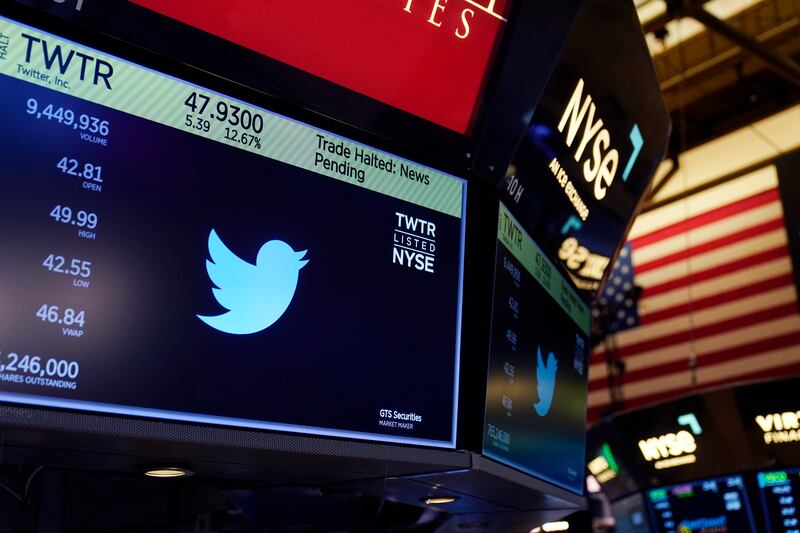Documents uncovered by The Washington Post reveal Tesla CEO and world’s richest human Elon Musk told investors he would slash Twitter’s workforce by 75% should his $44 billion bid to take over the social media giant come to fruition.
While Twitter reportedly had its own staff reductions planned before Musk’s announcement this spring that he intended to buy the company, some industry experts speculate that Musk’s promise to wield the ax at that level was a ploy to lure investing partners and, functionally, reducing Twitter’s staff by that amount would leave the company in shambles.
Why would Musk promise drastic cuts to Twitter’s staff?
Musk told prospective investors in his deal to buy the company that he planned to get rid of nearly 75% of Twitter’s 7,500 workers, whittling the company down to a skeleton staff of just over 2,000, per the Post.
Twitter has struggled to reach the scale, and revenues, attained by other major social media platforms and company leaders hinted at plans to reduce its operating budget by some $800 million and reduce staff by around 25% before the Musk deal surfaced. But experts say Musk’s suggested cuts to Twitter’s workforce, while alluring to potential investors, could leave the company reeling.
“A 75% headcount cut would indicate, at least out of the gates, stronger free cash flow and profitability, which would be attractive to investors looking to get in on the deal,” Wedbush analyst Dan Ives told The Associated Press. “That said, you can’t cut your way to growth.”
Ives added that such a drastic reduction in Twitter’s workforce would likely set the company back years.
What does free speech have to do with it?
Musk has described himself as a “free speech absolutist” and promised to retreat from Twitter’s current moderation guidelines. Musk has also taken particular note of permanent bans assessed by Twitter’s moderation team, including the platform’s most infamous move to ban former President Donald Tump.
In May, Musk said he was likely to reverse the permanent ban on Trump that was announced just days after the Jan. 6, 2021, riot and insurrection at the U.S. Capitol.
If Trump is allowed to return to the platform, it’s not clear if the almost 90 million followers he had before getting the boot would be reinstated along with his account.
Back in April, Musk made free speech a central focus in his statements about his plans to buy Twitter.
“Free speech is the bedrock of a functioning democracy, and Twitter is the digital town square where matters vital to the future of humanity are debated,” Musk said in a statement accompanying Twitter’s announcement of the deal in April. “I also want to make Twitter better than ever by enhancing the product with new features, making the algorithms open source to increase trust, defeating the spam bots, and authenticating all humans.
“Twitter has tremendous potential — I look forward to working with the company and the community of users to unlock it.”
What’s the status of Elon Musk’s Twitter offer?
Earlier this month, Musk revived his $44 billion offer to buy Twitter, the latest chapter in an epic tale that’s been alternately revving up and spinning out from the start of the new year.
The about-face comes after months of wrangling that began with Musk buying up stock in the company (January), then offering to buy the company (April), then reneging on the offer (July 8), arguing that Twitter hadn’t met its disclosure duties when it comes to identifying the number of fake or “bot” accounts on the platform.
Twitter called shenanigans on that argument and filed a lawsuit against Musk (July 12), looking to compel him to follow through with the deal or pay some very hefty penalties.
Musk and Twitter were just a couple of weeks away from the launch of their legal battle in a Delaware specialty court when it was disclosed in an Oct. 4 U.S. Securities and Exchange Commission filing that Musk’s legal team had proposed a do-over to Twitter’s lawyers. Not surprisingly, Twitter accepted.
The exchange puts the deal back on its original terms wherein Musk will cash out Twitter stockholders at $54.20 per share, the number behind the $44 billion buyout figure.
While Musk lawyers have asked that all legal proceedings come to a halt, including his previously scheduled deposition that was set to begin on Thursday, Twitter has yet to call off the lawsuit.
A Musk-Twitter deal deadline is looming
Twitter announced a freeze on employee stock account access earlier this week, a move that appears to be a positive sign that things are progressing toward a final agreement. The Delaware court has given Musk until Oct. 28 to close the deal. If that doesn’t happen, the lawsuit, which was previously scheduled to begin on Oct. 17, is back on with a likely court date in November.
Even with all signs pointing to a resolution, industry experts warn Twitter still has plenty of challenges ahead.
“The deal will solve some of the short-term uncertainty at the company, but Twitter is essentially in the same place it was in April,” Jasmine Enberg, an analyst with Insider Intelligence, told The Associated Press.
“There is still plenty of uncertainty around what Musk intends to do with Twitter, as well as the future of a company with a leader who has wavered in his commitment to buying it. And if we’ve learned anything from this saga, it’s that Musk is unpredictable and that it isn’t over yet.”


